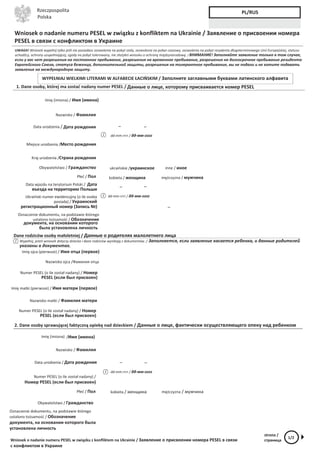Strategies For Enhancing Mental Health Literacy Education Programs

Table of Contents
Curriculum Development and Implementation
Developing and implementing successful Mental Health Literacy Education Programs requires a strategic approach focusing on evidence-based practices, engaging content, and robust teacher support.
Evidence-Based Curricula
Utilizing evidence-based curricula is paramount. These programs are grounded in rigorous psychological research and proven best practices, ensuring their effectiveness in achieving desired learning outcomes.
- Examples of evidence-based models: The Yale Program for Recovery and Community Health (YPRCH), the Mental Health First Aid (MHFA) program, and various cognitive behavioral therapy (CBT)-based interventions for youth.
- Resources for finding validated curricula: The National Institute of Mental Health (NIMH) website, the Substance Abuse and Mental Health Services Administration (SAMHSA), and academic databases like PsycINFO.
- Criteria for evaluating curricula effectiveness: Consider factors like program fidelity, participant engagement, knowledge gain, attitude shifts towards mental health, and changes in help-seeking behaviors.
Engaging and Accessible Content
To maximize impact, Mental Health Literacy Education Programs must engage diverse learners. Content should be relatable, culturally sensitive, and adaptable to various learning styles.
- Use of interactive methods: Incorporate games, simulations, role-playing exercises, and group discussions to foster active participation and knowledge retention.
- Multimedia resources: Utilize videos, animations, podcasts, and interactive online modules to cater to different learning preferences.
- Culturally sensitive materials: Ensure materials are inclusive and reflective of the diverse cultural backgrounds and experiences of the target audience.
- Age-appropriate language: Tailor the language and complexity of information to the developmental stage and understanding of the learners.
Teacher Training and Support
Effective delivery of Mental Health Literacy Education Programs hinges on well-trained educators. Comprehensive teacher training is crucial to equip them with the necessary knowledge, skills, and confidence.
- Ongoing professional development: Provide ongoing workshops, webinars, and training opportunities to update educators on the latest research and best practices.
- Mentoring programs: Pair experienced educators with newer ones to provide guidance and support.
- Access to expert resources: Connect educators with mental health professionals and experts who can address their questions and concerns.
- Addressing potential teacher anxieties and misconceptions: Create a safe space for educators to discuss their anxieties and address any misconceptions surrounding mental health.
Promoting Stigma Reduction and Help-Seeking Behaviors
Reducing stigma and promoting help-seeking are critical components of successful Mental Health Literacy Education Programs.
Challenging Stigma Through Narrative
Personal stories and narratives are powerful tools for humanizing mental health challenges and breaking down stigma.
- Sharing personal experiences (with consent): Invite individuals with lived experience to share their stories, emphasizing recovery and resilience.
- Emphasizing recovery and resilience: Showcase stories of individuals who have successfully navigated mental health challenges, highlighting the possibility of recovery and a fulfilling life.
- Showcasing the benefits of seeking help: Emphasize the positive outcomes associated with early intervention and professional support.
Educating about Help-Seeking Resources
Clear and accessible information about mental health resources is vital.
- Listing local and national helplines: Provide readily available contact information for crisis hotlines, helplines, and mental health support services.
- Mental health organizations: Include information about local mental health organizations, support groups, and community resources.
- Online resources: Share links to reputable online resources, such as websites offering self-help tools and information.
- Crisis intervention services: Provide information about crisis intervention services and emergency contacts.
Bystander Intervention Training
Empowering individuals to support those struggling with mental health challenges is crucial.
- Techniques for recognizing signs of distress: Equip individuals with the skills to recognize signs of mental health distress in others.
- Safe approaches to offering help: Teach individuals how to approach someone in distress in a supportive and non-judgmental way.
- Understanding boundaries and limitations: Emphasize the importance of respecting boundaries and recognizing the limits of one's ability to provide support.
Utilizing Technology and Innovative Approaches
Leveraging technology and innovative approaches can significantly enhance the reach and impact of Mental Health Literacy Education Programs.
Online and Digital Resources
Online platforms offer accessibility and flexibility.
- Interactive online modules: Develop engaging online modules that incorporate interactive elements and multimedia content.
- Virtual reality experiences: Utilize VR technology to simulate real-life scenarios and provide immersive learning experiences.
- Gamified learning platforms: Incorporate game mechanics and challenges to increase engagement and knowledge retention.
- Mobile apps with self-help tools: Develop mobile apps offering self-help tools, resources, and support.
Community Partnerships and Outreach
Collaboration expands reach and impact.
- School-community collaborations: Partner with community organizations, schools, and families to create a comprehensive approach to mental health literacy education.
- Partnerships with mental health organizations: Collaborate with mental health professionals and organizations to ensure the accuracy and effectiveness of educational materials.
- Community awareness campaigns: Develop and implement community awareness campaigns to promote mental health literacy and reduce stigma.
- Engaging parents and families: Involve parents and families in the educational process to create a supportive home environment.
Evaluation and Data-Driven Improvement
Continuous evaluation is essential for program improvement.
- Using pre and post-tests: Assess knowledge and attitudes before and after the program to measure its effectiveness.
- Collecting student feedback: Gather feedback from students to identify areas for improvement and ensure the program is meeting their needs.
- Analyzing program data: Analyze data from various sources to identify trends and patterns that can inform program modifications.
- Adjusting the curriculum based on findings: Use data to make evidence-based changes to the curriculum to improve its effectiveness.
Conclusion
Enhancing Mental Health Literacy Education Programs requires a multifaceted approach encompassing evidence-based curricula, engaging content, robust teacher training, effective stigma reduction strategies, innovative technological applications, and ongoing evaluation. By adopting these strategies to enhance your own Mental Health Literacy Education Programs, you can empower individuals, improve community well-being, and create a lasting positive impact on mental health awareness and support. Let's work together to build a more informed and supportive community where everyone feels comfortable seeking help and thriving in their mental well-being.

Featured Posts
-
 Latest Lotto Lotto Plus 1 And Lotto Plus 2 Winning Numbers
May 03, 2025
Latest Lotto Lotto Plus 1 And Lotto Plus 2 Winning Numbers
May 03, 2025 -
 Doctor Who A Potential Pause In The Tardis Journey
May 03, 2025
Doctor Who A Potential Pause In The Tardis Journey
May 03, 2025 -
 Sounesss Praise For Lewis Skelly A Winning Attitude
May 03, 2025
Sounesss Praise For Lewis Skelly A Winning Attitude
May 03, 2025 -
 Complete Guide To Newsround On Bbc Two Hd
May 03, 2025
Complete Guide To Newsround On Bbc Two Hd
May 03, 2025 -
 Unlocking Potential The Value Of Middle Managers In Modern Organizations
May 03, 2025
Unlocking Potential The Value Of Middle Managers In Modern Organizations
May 03, 2025
Latest Posts
-
 Makron I S Sh A Novaya Strategiya Davleniya Na Rossiyu V Svyazi S Konfliktom V Ukraine
May 04, 2025
Makron I S Sh A Novaya Strategiya Davleniya Na Rossiyu V Svyazi S Konfliktom V Ukraine
May 04, 2025 -
 Zayavlenie Makrona Usilenie Davleniya Na Rossiyu Iz Za Ukrainy
May 04, 2025
Zayavlenie Makrona Usilenie Davleniya Na Rossiyu Iz Za Ukrainy
May 04, 2025 -
 Makron Ubedil S Sh A Usilit Davlenie Na Rossiyu Po Ukraine
May 04, 2025
Makron Ubedil S Sh A Usilit Davlenie Na Rossiyu Po Ukraine
May 04, 2025 -
 Images Inedites L Emotion D Emmanuel Macron Apres Une Rencontre Avec Des Victimes En Israel
May 04, 2025
Images Inedites L Emotion D Emmanuel Macron Apres Une Rencontre Avec Des Victimes En Israel
May 04, 2025 -
 La Douleur Des Victimes Israeliennes Emmanuel Macron Temoigne D Une Profonde Emotion
May 04, 2025
La Douleur Des Victimes Israeliennes Emmanuel Macron Temoigne D Une Profonde Emotion
May 04, 2025
